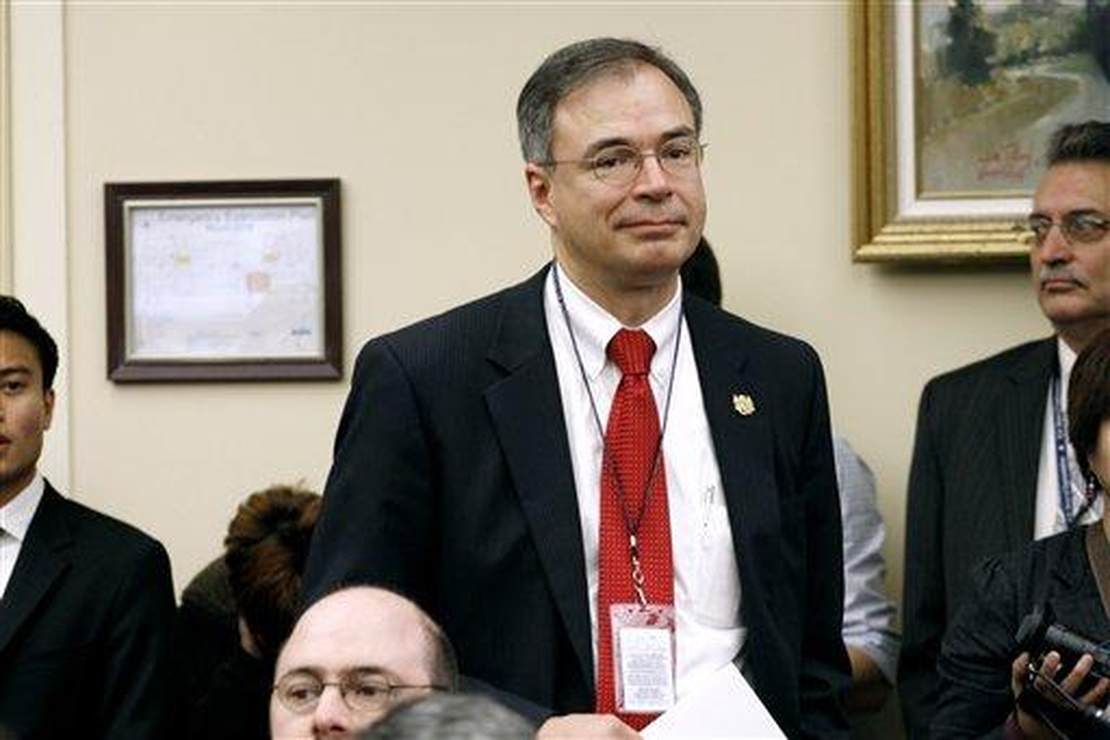
Back in 2010, Andy Harris was a rising political star in Maryland who was running for a seat in Congress. Like many of his fellow aspiring legislators from both parties, Harris was a firm proponent of term limits. He sensibly suggested that Senators should be restricted to two terms, while House members could serve six. Both would be able to serve for the same amount of time before clearing out to make room for some new blood in the seat. Even if he couldn’t manage to get a term limit law passed, he personally vowed to serve no more than six terms and to keep working on the issue. He won that election and went on to survive multiple challenges. This year he’s getting an earful as he prepares for the midterms because Harris is now running for his seventh term, and he hasn’t said a word about term limits to anyone. (Baltimore Sun)
The term limits debate is back, and its reemergence comes at an awkward time for Republican Rep. Andy Harris of Maryland. The conservative lawmaker was long an ardent term limits backer, sponsoring legislation and making public pronouncements. But he’s remained silent on the issue this year as he seeks a seventh term after pledging more than a decade ago to serve no more than six.
It remains to be seen whether Harris, 65, a Johns Hopkins-trained anesthesiologist and Maryland’s only GOP congressman, pays a political price for that. He is running in the 1st District, which the General Assembly redrew this year as part of redistricting. The district — including the Eastern Shore, Harford County and a portion of Baltimore County — remains Republican-friendly.
History shows politicians regularly break term limit pledges with impunity.
Harris wouldn’t give an interview to the Sun on the subject of term limits, but he did a different interview earlier this year where it was brought up. At the time, he still had little say beyond claiming that “the situation is very different from then.” Clearly, he is set on running again and the general consensus is that he likely won’t pay much of a price for going back on his promise. His district still leans Republica and his approval ratings are at least as good as any of the members can manage to achieve these days.
READ RELATED: The Absurd Fantasy of Biden's 'Zero Emissions' Goal
Harris is far from the only person being called out and this pattern shows up in both parties. Texas Democratic Congressman Henry Cuellar is seeing billboards going up around the district reminding people that he is overstaying his promised time in Congress. In Utah, Republican Senator Mike Lee is being criticized for running for a third term after previously backing a measure limiting senators to two terms. Other examples are common.
One thing to note, particularly when it comes to Lee, is that there is a difference between supporting a measure that would impose term limits on everyone and vowing to hold to those limits yourself even if no such rules are imposed. Unlike Harris, Lee never actually said he would step down voluntarily while everyone else was able to stick around for as long as they want.
Sadly, this is all too common. I worked on a congressional race in 2010 where our candidate was criticizing the Democratic opponent for having spent his entire adult life working on the taxpayer dime and much of that was in the House of Representatives. Our candidate lost, but after the last round of redistricting, the Democrat turned around and accused his new opponent of having served too many terms. One common trait among swamp creatures is their apparent inability to suffer embarrassment.
Personally, I’ve gone back and forth on term limits over the years. In theory, I like the idea of bringing in new voices and having them get into the mix. But it’s also true that if you do manage to get a good representative who does a great job for you, not every replacement candidate is going to be of the same caliber. Also, there is much to be said for the argument that we already have a permanent set of term limits and they are imposed by the voters. When you stop delivering, your time is up.
But the denial of former oaths such as the ones we’re seeing now is a stark reminder about campaign promises. What’s good for thee is not always good for me. And “that was then but this is now.” Americans distrusting their government and their elected officials is nothing new. And it’s not always unwarranted.
Source:






